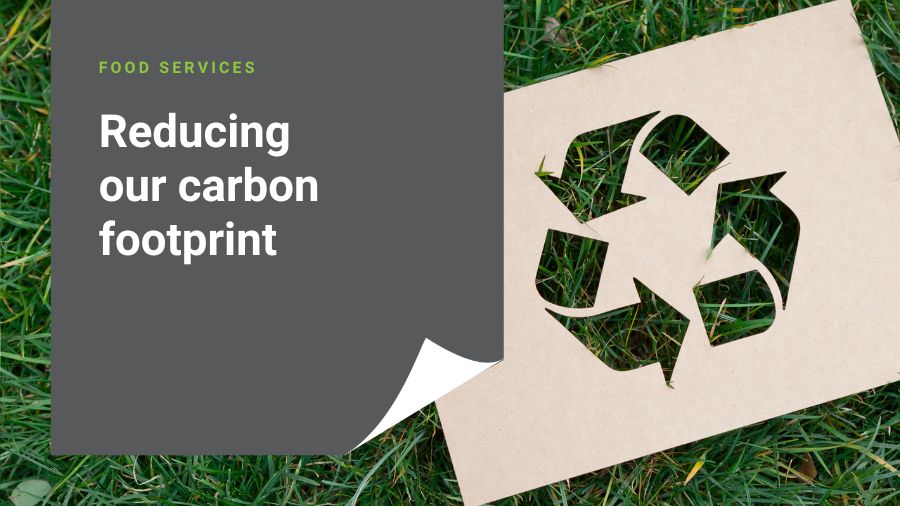The foodservice industry is transitioning to more sustainable practices, and packaging plays a crucial role in this evolution. As consumers and businesses become increasingly aware of the importance of reducing their environmental impact, sustainable plant-fibre packaging materials are gaining popularity.
These eco-friendly alternatives are not only environmentally friendly, but they also offer superior performance to traditional plastics. Let’s explore the world of sustainable packaging to understand its impact and determine whether they’re right for your business.
What is plant-fibre packaging?
Bamboo: a versatile, renewable material
Bamboo is a fast-growing plant, capable of regenerating quickly after harvesting without replanting. This makes it an excellent renewable resource that is ideal for sustainable use. Bamboo is transformed into a fine fibre, which is then compressed to form solid sheets used in the production of food packaging.
Sugarcane: recycling agricultural by-products
Sugarcane is a by-product of the sugar industry, obtained after the extraction of juice from the sugarcane. Traditionally considered waste, this fibrous residue now produces biodegradable packaging materials. The sugarcane is moulded and pressed to form rigid, durable containers, ideal for food applications.
What are the benefits of plant-fibre packaging products?
-
Biodegradability and compostability
One of the greatest advantages of plant-fibre packaging is its biodegradability. Unlike conventional plastics, which can take centuries to decompose, these materials degrade naturally in months when composted. This significantly reduces the amount of waste sent to landfills and lowers companies’ carbon footprints.
-
Strength and durability
Despite their biodegradable nature, plant-fibre packaging offers impressive resistance. They can withstand high temperatures, making them suitable for hot and cold foods. Moreover, these materials are resistant to water and oil, ensuring that food remains intact and fresh.
-
Reduced carbon footprint
The use of renewable materials such as plant-fibre helps reduce the carbon footprint of foodservice companies. Bamboo, for example, captures more CO2 and produces more oxygen than most other plants, which helps offset the carbon emissions associated with packaging production. What’s more, transforming Sugarcane into packaging repurposes an agricultural by-product that would otherwise have been wasted, thus optimizing the use of resources.
-
Enhanced brand image
Companies that adopt sustainable packaging made from plant fibres can strengthen their brand image by demonstrating a strong commitment to sustainability. Consumers are increasingly attracted to businesses that take steps to protect the environment, which can result in increased loyalty and a better reputation in the marketplace.
Are plant-fibre food packaging products right for my business?
Bamboo and sugarcane packaging products are suitable for various businesses in the foodservice sector, from restaurants and remote sites to hospitals, schools, caterers, and Meals-on-Wheels. These materials are particularly suited to companies looking to reduce their environmental impact without compromising the quality or functionality of their packaging.
Our plant-fibre and pressed paper trays offer robust performance comparable to traditional plastics while being environmentally friendly.
Contact us to find out more about these packaging solutions and how they can meet your company’s specific needs.
We look forward to hearing from you!

